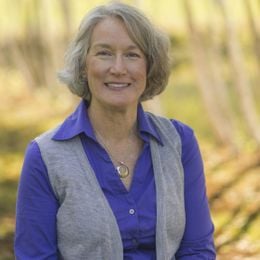The Wisdom of Mom
Everything I know about money management, I learned from my mother
My mother was a "fifties housewife" by the standards of today, but that was only if you gave her family role and life a quick glance. I watched her every day. She was more progressive than she let on when it came to equality and money. She seldom preached about money. Her money management style was a way of life.

Never waxing poetically about her financial policies, her actions spoke louder than words. Some of her favorite sayings apply to money as well as life. There are five that resonate loudest, even six years after her passing:
"Tell me, I'll forget. Show me, I may remember.
But involve me and I'll understand."
—Chinese proverb1. Honesty is the Best Policy
This came around money and every life issue. What I noticed is that she was honest with herself. She knew how much she spent, what she bought and why. She did not make excuses that she needed to spend money on something. She spent when necessary and withheld all justification and explanations to herself or those around her.
She was honest with her partner, my dad. I never remember a shopping trip with her ending in "Do not tell your Dad." I also never remember her saying we cannot get that without Dad's permission. She was confident that if she felt it was important, she would buy it.
Was there mental telepathy? I think not. Most times, I suspect they discussed options before they came up. If something unexpected came up, she knew if she were honest with herself, she would not be questioned on purchases. They trusted each other. This was a system that worked for them. Based on honesty and clarity.
2. Waste Not, Want Not
This tenet applied to food as well as any material things in life. I can see her cleaning out the peanut butter jar with a spatula to get one more PB&J sandwich from the jar. My mom was the "queen of recycling" before it was cool.
As a child, I found it sometimes embarrassing. She was not afraid of reusing anything from aluminum foil to furniture, ice skates to clothes. Old clothes were used for rags. Plastic bags reused. Paper towels never used since the rags would do.
My mom's cost savings and hand-me-down policy meant our family had some "extras" that other families could not afford. For example, we always had properly fitting skates even if they were hand-me-downs. (Sports equipment gave me great joy, even as the youngest of four children.) Her conservation had a purpose: The best for all her children.
3. Keep it Simple
My mom had her own style of money management that consisted of a joint checkbook with my Dad. The joint checkbook that she never carried with her was for bills and big things. She and my father communicated with that book without more than a question or conversation. Other than that, she used cash for everything from gas to groceries after getting her money from the bank, by writing a check.
She balanced the checkbook every month. Taking the time even if it was a penny off.
As children, we could find what we needed for incidentals. The change dish was for school lunch. The "hidden" cigar box for larger items. The whole household knew where it was and that there were a few twenties available when designated a need by a parent. We would be allowed to reach in and pull out a twenty.
What we did not know for sure is that someone was keeping track, it was not the mysterious ever flowing box like we thought. One night at dinner, Mom said, "I am missing a twenty from the box." There was a pause, and then my brother said, "Oh I took a twenty out when the car needed gas." He had broken the cardinal rule of asking by taking before telling us that money was needed. Mom did not get mad. But we got the message, no need to think we could take cash and get away with it. She was tracking all right.
Credit cards were non-existent in my young household; however, when she did get her first credit card, the limit was $5,000. She used it for occasional clothing shopping but always came home and wrote a check for what she spent.
4. Pay Attention, Details Matter
As much as my mother insisted that we pay attention in school and take care of details at home, she was doing the same thing. She balanced the checkbook every month. Taking the time even if it was a penny off. She would never understand now why very few people balance their checkbooks. She took care of her money and would never dream of writing a check without knowing there was money in the checkbook and the exact amount.
She also knew that details mattered. She used coupons faithfully. She knew which stores sold better vegetables and less-expensive meat. Her shopping trips rarely produced soda or junk food. (Her thrift turned out to have healthy family benefits, too.) We ate well, even if sometimes when she found steak on sale it was steak for my Dad and hamburgers for the kids. To us, we got the "fun" food and felt lucky.
5. Establish Priorities, Respect Individual Ones
She insisted we all attend Cheverus Centennial Catholic grammar school. For high school, we had a choice of the area college prep Catholic schools. College attendance did not come with an option, despite my parents' lack of that opportunity. They wanted it for us. The question to be answered at our home was "which one?"
She may not have had a full-time job outside of our home, but she certainly had equal say on the money that flowed through it.
She often said, "I would scrub floors to pay for your Catholic education." Obviously, education was important to her. She scrubbed floors a lot, usually our kitchen, but never had to do it outside our home to support our family life or education goals for us.
She was busy running the household as thrift manager and budget master. Aiming us all toward college and again working with my Dad to have the money available. Once, I specifically thanked Dad for our education. "Don't thank me," he said, "It was your mother's priority." No wonder I wore hand-me-downs.
This last story was the clincher of my mom's "modern" marriage. She may not have had a full-time job outside of our home, but she certainly had equal say on the money that flowed through it. My parents had separate priorities but were considerate and worked with each other for financial decisions.
During these challenging inflationary times, I thought you, too, may want to learn about money management from my mom. She was not an investor. She learned later in life about the ups and downs of the stock market. She was into managing money: counting her pennies, saving for purchases and shouldering the household financial responsibilities.

C.D. Moriarty, CFP, is a Vermont-based financial speaker, writer and coach. She can be found at MoneyPeace.com. Read More

